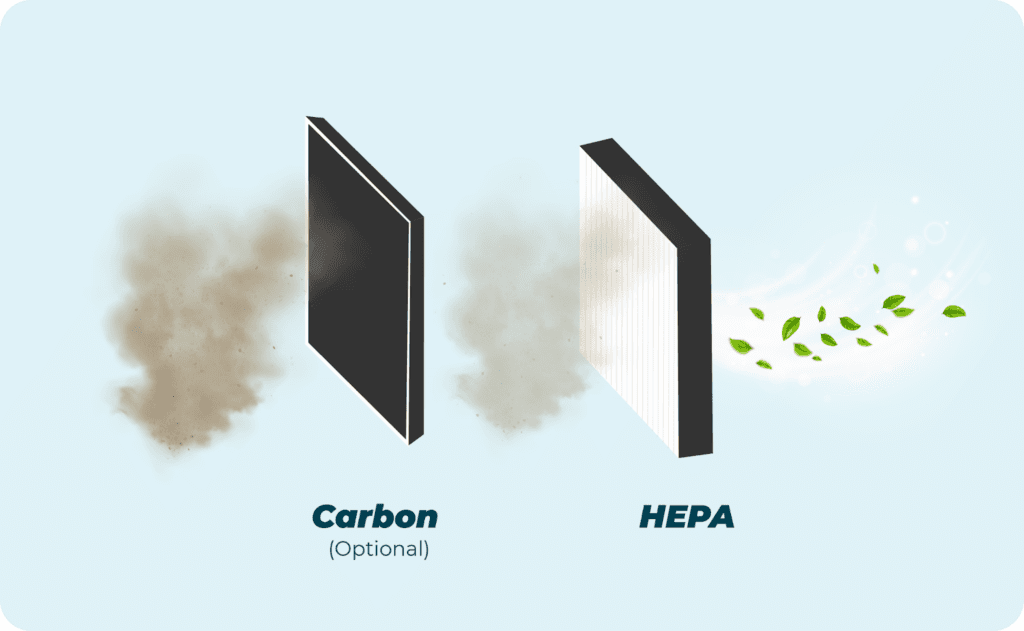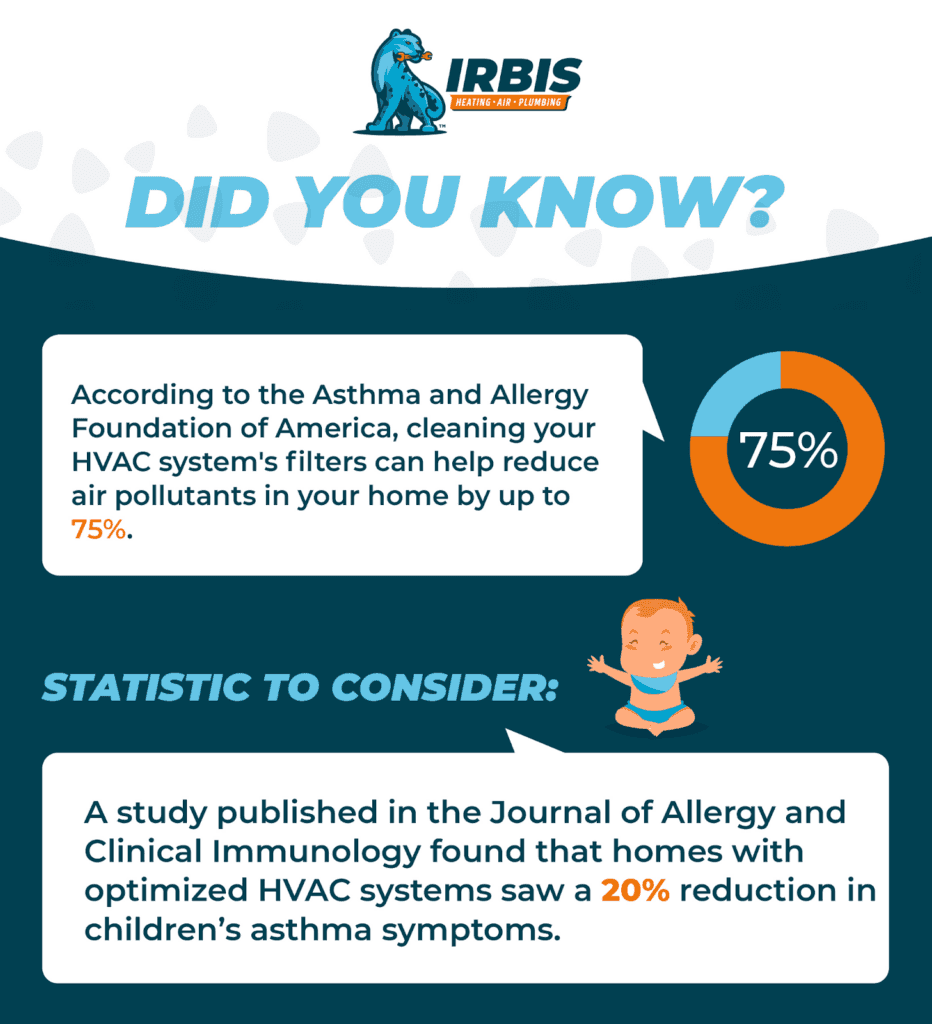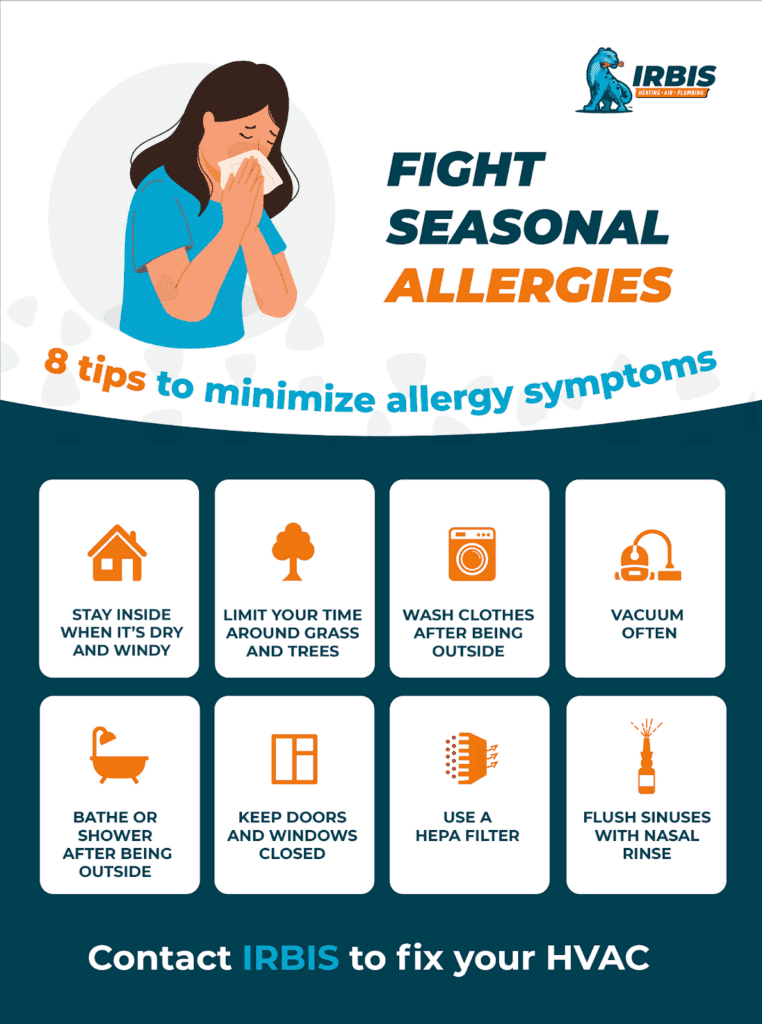
Sneezing, stuffy noses, itchy eyes—sounds like allergy season is in full swing! Did you know that more than 50 million Americans experience various types of allergies each year, making it the sixth leading cause of chronic illness in the USA? Interestingly, while outdoor allergens are often blamed for seasonal discomfort, the allergens lurking in our homes can be just as troublesome. This is where your HVAC system steps into the limelight—not just as a regulator of temperature but as a crucial defender against allergens.
Unveiling the Culprits Behind Allergies
Allergies are immune system responses to foreign substances that are usually harmless. These can include:
- Pollen: Produced by plants, pollen is one of the most common allergens and can be problematic year-round, depending on the climate.
- Dust Mites: These tiny creatures thrive in warm, humid environments and are prevalent in bedding, upholstered furniture, and carpets.
- Pet Dander: Flakes of skin shed by cats, dogs, and other furry or feathered pets are common allergens.
- Mold: This can grow in damp areas and release spores into the air, which are easy to inhale.
Exactly in the case with HVAC, think of your system as a big fan that keeps recirculating the air inside your room or building. Instead of pulling fresh air from outside, it takes the indoor air, chills or heats it, and sends it back out. This method helps to maintain comfortable temperatures and cuts down on energy use.
Since the air is recirculated, all the dust, pollen, and other tiny unwanted guests stay inside too. If these aren’t filtered out, they just keep floating around, which can lead to stuffy noses, itchy eyes, or worse, especially for those with allergies or asthma.
Enhancing Indoor Air Quality
Your HVAC system is more than just a temperature controller; it’s a potent tool that can help alleviate allergy symptoms through enhanced air quality.
Here are tricks on how you can fight against allergens:
- Install Superior Filters: The installation of high-efficiency particulate air (HEPA) filters in your HVAC system can trap 99.97% of airborne particles as small as 0.3 microns. These filters are effective against pollen, dust mites, and many other allergens, ensuring that the air circulating in your home is much cleaner.

- Check Filter for MERV rating: MERV stands for Minimum Efficiency Reporting Value, which honestly sounds like something a bored scientist came up with on a rainy Tuesday. But what it does is pretty cool—it rates filters based on how tiny the particles they can trap are. These ratings range from 1 to 20. For most homes, a filter with a MERV rating between 8 and 13 is like hitting the sweet spot in a game of darts. It’s just enough to keep your air clean without straining your AC system.
You may install them yourself until their rate exceeds 11, and if you want a filter with higher density, contact IRBIS HVAC, and we will help you to install them!
- Control Humidity Level: Maintaining indoor humidity below 50% can significantly deter the growth of dust mites and mold. HVAC systems with integrated dehumidifiers can automatically adjust the moisture levels in your home, creating an environment that’s less hospitable to allergens.
- Do Regular Maintenance: Ensuring that your HVAC system is cleaned and serviced regularly prevents the accumulation of dust and mold within the system itself. This not only extends the life of your HVAC but also prevents it from becoming a source of allergens.
- Install Fresh Air Intake: Some modern HVAC systems include settings that increase ventilation, bringing in fresh outdoor air and diluting the concentration of indoor allergens.
- Get IQ Air Purifier: One more option to fight allergies is installing IQ Air Purifier. After a rigorous test against the strictest industry standard, the results are as follows: it surpasses the highest MERV rating of 16. This means that the IQ Air Purifier doesn’t just meet expectations; it sets new benchmarks in air purification.
Why compromise your health with lesser air purification methods when you can have the best? Choose proven protection. Choose IQAir’s PerfectPro Series.
Special Offer for Our Readers
If you’re interested in improving the air quality in your home, we’re here to help. At IRBIS HVAC, we’re offering a special discount to our readers. Mention this article when you , and you’ll receive 20% off your installation. Enhance your indoor air quality at your convenience—reach out to us to learn more.
Fun Facts and Figures


Engaging Your HVAC in the Fight Against Allergies
Taking proactive steps with your HVAC system can significantly impact your comfort and health, particularly during allergy season. Consider scheduling a professional HVAC inspection to ensure your system is not only functioning efficiently but is also set up to help combat the allergens specific to your environment. With the right setup, your HVAC system can transform your home into a refuge from the sneezes and sniffles of allergy season.
By understanding the role of HVAC systems in managing indoor air quality, you can take control of your living environment and create a healthier, more comfortable home for you and your family. Remember, when it comes to allergies, what you can’t see can hurt you, but with a well-maintained HVAC system, you’ll breathe easier knowing that your air is clearer.
You can always contact IRBIS HVAC, and we will help you to fight allergies through HVAC systems!
The post Clearing the Air: How HVAC Systems Can Be Your Ally Against Allergies appeared first on IRBIS Heating, Air & Plumbing | www.irbishvac.com.

